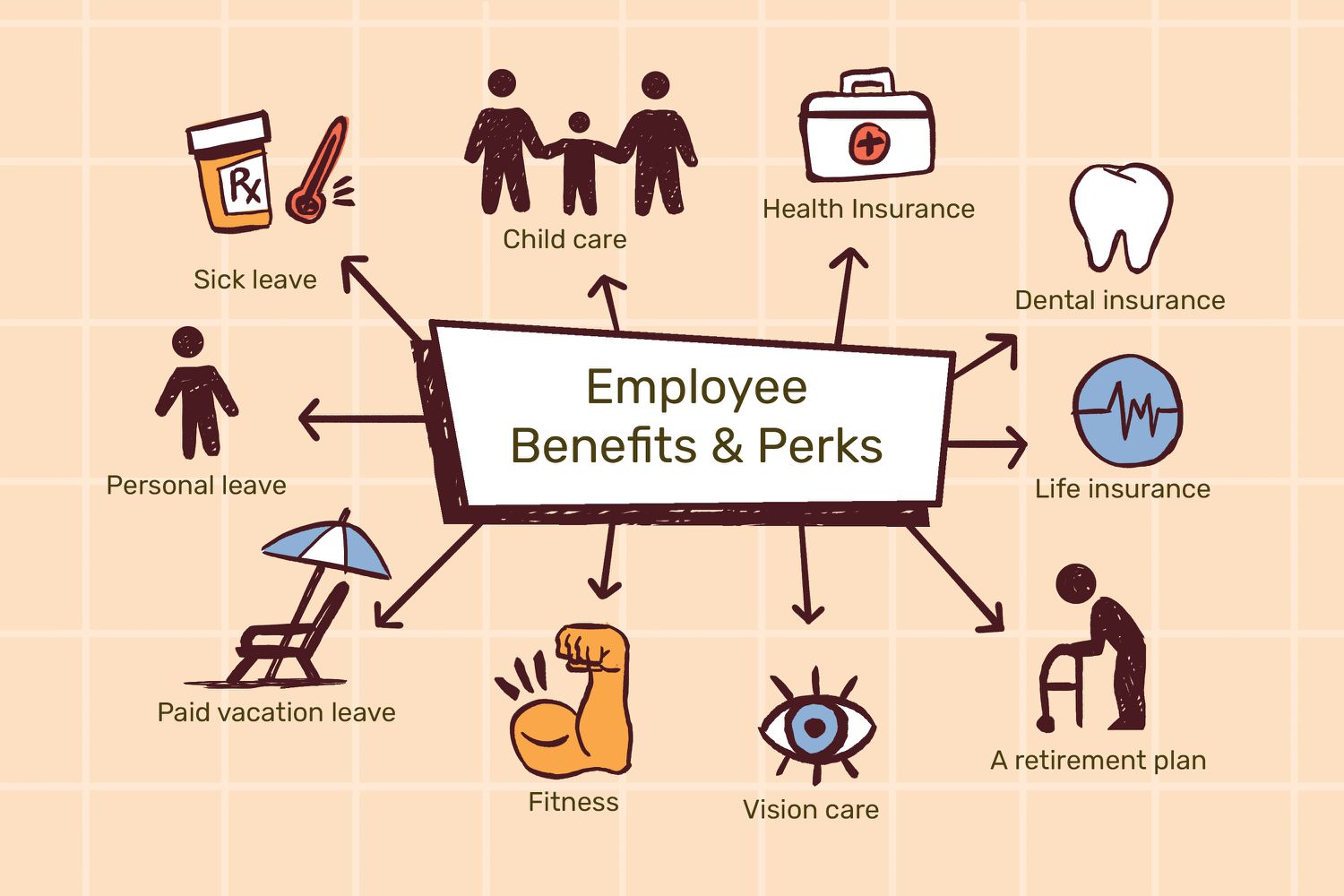Types of Benefits for Employees
In this article, we will explore the various types of benefits that employers offer to their employees. These benefits go beyond just a salary and play a crucial role in attracting and retaining top talent. By understanding the different types of benefits available, employers can create a comprehensive package that meets the needs and expectations of their workforce.
Health and Wellness Benefits
One of the most important categories of employee benefits is health and wellness benefits. These benefits are designed to support the physical and mental well-being of employees. They may include:
Health insurance coverage
Dental and vision insurance
Wellness programs
Employee assistance programs
On-site gyms or fitness memberships
Retirement Benefits
Retirement benefits are another crucial aspect of an employee’s overall compensation package. These benefits help employees plan for their future and ensure financial security after retirement. Some common retirement benefits include:
401(k) plans
Pension plans
Profit-sharing plans
Employee stock ownership plans (ESOPs)
Paid Time Off
Offering paid time off (PTO) is a valuable benefit that allows employees to take time away from work for various reasons without sacrificing their income. PTO may include:
Vacation days
Sick leave
Personal days
Parental leave
Holidays
Flexible Work Arrangements
Flexible work arrangements have become increasingly popular in recent years. These arrangements provide employees with greater control over their work schedules and locations. Some common types of flexible work arrangements include:
Remote work options
Flexible hours
Part-time work
Job sharing
Professional Development
Investing in the professional development of employees can greatly benefit both the individual and the organization. Employers can offer various opportunities for growth and learning, such as:
Tuition assistance or reimbursement
Training programs
Conferences and workshops
Mentorship programs
Employee Perks and Discounts
Employee perks and discounts are additional benefits that can enhance the overall employee experience. These perks may include:
Employee discounts on products or services
Company-sponsored events
Complimentary snacks or meals
Employee recognition programs

Employee benefits play a vital role in attracting, motivating, and retaining talented individuals. By offering a comprehensive package that includes health and wellness benefits, retirement benefits, paid time off, flexible work arrangements, professional development opportunities, and employee perks, employers can create a competitive advantage in the job market. Remember, a well-crafted benefits package not only helps in attracting new employees but also fosters a positive work culture and enhances employee satisfaction and loyalty.
Frequently Asked Questions
1. What are the different types of benefits offered to employees?
There are various types of benefits that employers may offer to their employees, including health insurance, retirement plans, paid time off, and employee assistance programs.
2. How does health insurance benefit employees?
Health insurance provides employees with coverage for medical expenses, including doctor visits, hospital stays, prescription medications, and preventive care.
3. What is a retirement plan and how does it benefit employees?
A retirement plan is a savings plan that helps employees save money for their retirement years. It provides financial security and peace of mind for employees after they stop working.
4. What are paid time off benefits?
Paid time off benefits include vacation days, sick leave, and holidays. These benefits allow employees to take time off from work while still receiving their regular pay.
5. How do employee assistance programs (EAPs) benefit employees?
Employee assistance programs offer counseling and support services to employees, helping them deal with personal or work-related issues that may affect their well-being and productivity.
6. Are there any tax benefits associated with employee benefits?
Yes, some employee benefits may have tax advantages. For example, contributions to retirement plans are often tax-deductible, and health insurance premiums are often paid with pre-tax dollars.
7. Can part-time employees receive benefits?
It depends on the company’s policies. Some employers offer benefits to part-time employees, while others may only provide them to full-time employees.
8. What are fringe benefits?
Fringe benefits are additional perks offered to employees, such as company cars, gym memberships, or tuition reimbursement. These benefits go beyond the basics and are meant to enhance the overall employee experience.
9. How do employee benefits contribute to employee satisfaction?
Employee benefits play a crucial role in ensuring employee satisfaction. They demonstrate that the employer values their well-being, which leads to increased loyalty, motivation, and productivity among employees.
10. Can employees choose the benefits they want?
In many cases, employers offer a range of benefit options, allowing employees to choose the ones that best suit their needs. However, the availability of choices may vary depending on the company’s policies and budget.




